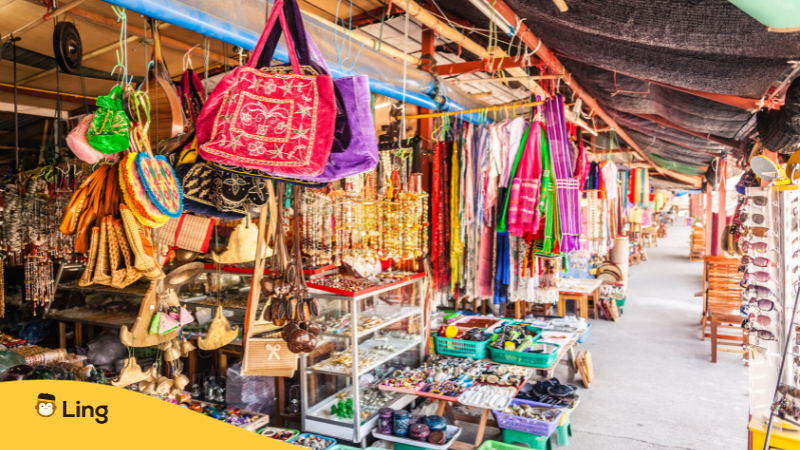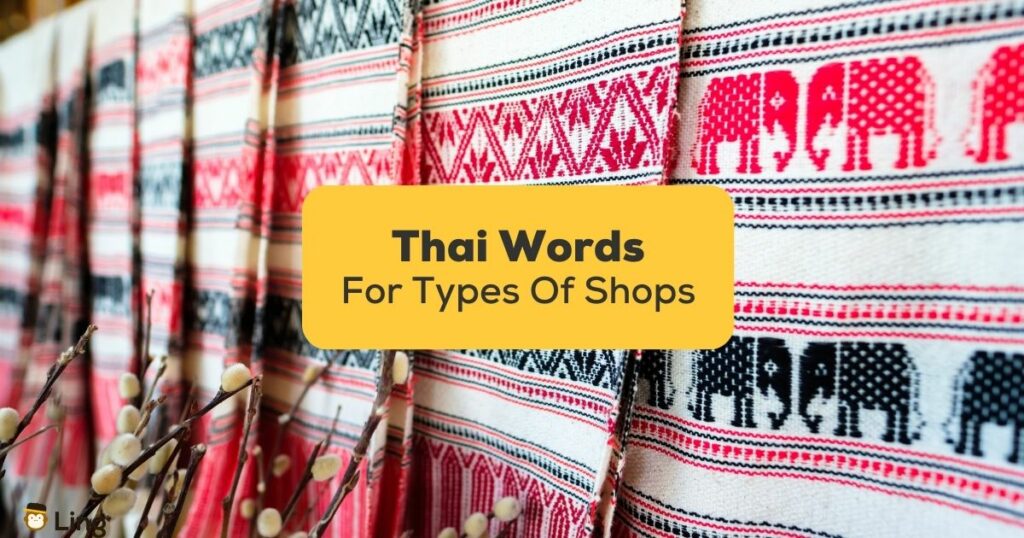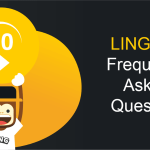Greetings, intrepid explorers and shopping enthusiasts! Stepping into the vibrant and welcoming heart of Thailand means gearing up for a shopping journey unlike any other. In this renowned shopper’s paradise, amidst the awe-inspiring landscapes and deep cultural roots, lies a vibrant array of stores ready to fulfill your every shopping desire. Join us as we dive deep in this post, unveiling essential Thai words for types of shops that will guide you in your marketplace adventures!
What Is “Shop” In Thai?
In the Thai language, the cornerstone term you’ll want to familiarize yourself with is “ร้าน” (ráan), which translates to “shop.” This versatile word lays the foundation to navigate the vibrant commercial spaces in Thailand, encompassing an array of establishments offering a diverse range of goods and services for sale. Equipped with this knowledge, you’re now ready to venture into the bustling Thai markets, identifying various shops with ease as you reference the list below:
- ร้านขายอาหาร (ráan kăai aa-hăan) – Restaurant
- ร้านขายเสื้อผ้า (ráan kăai sêua-phâa) – Clothing store
- ร้านขายหนังสือ (ráan kăai năng-sĕu) – Bookstore
- ร้านขายสมุนไพร (ráan kăai sŏm-moon-phai) – Herbal shop
Based on those examples, you can see the versatility of the term “ร้าน” in the Thai language. By pairing it with various nouns, you can accurately pinpoint and communicate the specific type of shop or store you’re talking about, easing your way into more direct conversations while in Thailand.

Stealthy Thai Words For Types Of Shops
Want to blend in with the undercover operatives? Here’s a list of different types of shops that will help you maintain your cover.
| English | Thai Script | Pronunciation |
|---|---|---|
| Shoe store | ร้านรองเท้า | Raan Raawng Thaao |
| Beauty salon | ร้านเสริมสวย | raan serm suai |
| Restaurant | ร้านอาหาร | Raan Aa-Haan |
| Coffee shop | ร้านกาแฟ | Raan Kaa-Fae |
| Supermarket | ซูเปอร์มาร์เก็ต | Raan Sùp-Pə̂ə Maa-Két |
| Bookstore | ร้านหนังสือ | Raan Nang Su |
| Retailer | ผู้ค้าปลีก | Phu Khá Plīk |
| Electronics store | ร้านอิเล็กทรอนิกส์ | Raan I-Lek-Tha-Ro-Nik |
| Convenience Store | ร้านสะดวกซื้อ | Raan Sà-Dwàk Seûu |
| Pharmacy | ร้านยา | Raan Ya |

The Covert Art Of Negotiation
Now, let’s unveil the secret techniques of negotiation in Thailand. Remember, discretion is key!
Step 1: The Stealthy Salutation
Initiate your undercover operation with a coded “สวัสดีครับ” (Sawasdee khrap – Hello) and subtly probe for the price of your target item. In Thai, you can deploy a simple “นี่ราคาเท่าไหร่ครับ” (Nîi raa-khaa tâo-rài khrap – What is the price of this?). Initiate contact discreetly; we don’t want to blow our cover.
Step 2: Maintain A Cool Exterior
Upon receiving the initial price, maintain your poker face, even if it’s a shocker. Calmly communicate your surprise, saying, “ราคานี่แพงเกินไป” (Raa-khaa nîi phaeng gaan bpai – This price seems too expensive). Keep your emotions concealed; we’re espionage experts, after all.
Step 3: Execute The Covert Counteroffer
Now, it’s time to engage in the negotiation dance. Deploy a coded message, “ลดราคาได้ไหมครับ” (Lót raa-khaa dâi mái khrap – Can you lower the price?). State your proposed amount with the finesse of a secret agent.
Step 4: The Tactical Pause
If the vendor remains unmoved, consider employing a strategic pause. Begin to retreat, hinting that you might abort the mission. This classic maneuver often triggers a change in the seller’s stance.
Step 5: Seal The Covert Deal
Once you’ve infiltrated their defenses and reached an agreement, seal the deal with a coded message, “ดีครับ ผมจะซื้อนี้” (Dii khrap, phǒm ja seûu níi – Okay, I’ll buy this).
Remember, maintaining discretion and covertness is crucial throughout the negotiation process. Keep the interaction covert, and enjoy the thrill of Thailand’s undercover markets, where bargaining is a top-secret mission that leaves everyone smiling.
What Do You Call The People Working In A Thai Shop?
The people working in a shop can be referred to by different titles depending on their specific roles and responsibilities. Here are translations of common words used in English to describe individuals working in a shop.
Vendors (คนขาย)
Meet the “คนขาย” (khon kăai), the heartbeat of the Thai markets. These individuals, whether specialists or generalists in the products they offer, stand as pillars in the buying and selling ecosystem, dedicated to catering to customer needs and enhancing their shopping experience.
Shopkeeper (เจ้าของร้าน)
Meet the “เจ้าของร้าน” (jâo-kŏng ráan) – the steadfast overseer of any Thai shop. This individual stands as the backbone of the establishment, seamlessly handling daily operations, inventory, and finances, all the while ensuring a smooth business flow.
Sales Attendant (พนักงานขาย)
On your shopping journey, you’ll encounter the ever-helpful “พนักงานขาย” (phanák-ngaan kăai), your go-to person for product insights and purchasing assistance. Entrusted with creating a gratifying customer journey, they facilitate transactions with a warm and engaging approach, aiming for your complete satisfaction.
Buyer (ผู้ซื้อ)
And then there’s you, the “ผู้ซื้อ” (phûu-sĕu), the vital heartbeat of the bustling market scene. As a buyer, you not only fulfill your shopping aspirations but also fuel the thriving business atmosphere, driving demand and fostering successful commercial endeavors with each purchase you make.
Seller (ผู้ขาย)
Navigating the Thai market? You’ll hear the term “ผู้ขาย” (phûu-kăai) frequently, a reference to sellers or vendors in the locale, the key figures spearheading transactions and offerings in the vibrant Thai market scene. These individuals are deeply involved in various spheres, including marketing, negotiations, and customer relations, to woo potential buyers and streamline deals.
Keep in mind, the intricate Thai language embraces distinct honorifics and titles when addressing individuals, considering factors such as gender, age, and formality degree. Therefore, the translations given here serve as broad strokes, versatile for general use.
Learn Thai With Ling
As we learned in this post, understanding the terminology related to shops and the people working in them is essential for effective communication in Thai. The translations provided for common words such as vendors, shopkeeper, sales attendant, buyer, and seller give you a starting point to expand your Thai vocabulary in this context.
If you’re interested in learning Thai or improving your language skills further, I recommend trying the Ling app. It’s a language learning app available for download on both the Play Store and the App Store. With Ling, you can access comprehensive lessons, interactive exercises, and real-life conversations to enhance your understanding of Thai. Start your language journey and download the Ling app today!




































































